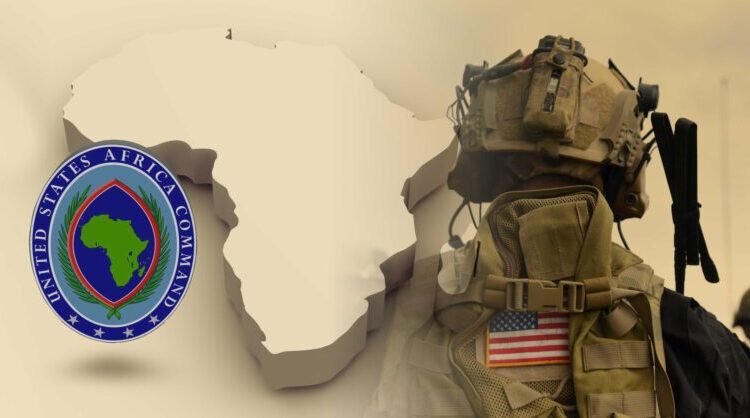US AFRICOM Forces and the Security Challenge in Eastern and Western Africa

Germany – Sudanhorizon
The Deputy Chairman of the Joint Chiefs of Staff for US Africa Command (AFRICOM), Admiral Christopher Grady, stressed the importance of East, Central, and West Africa to AFRICOM, given their rapidly growing and youthful populations, as well as the recent security challenges in these regions.
Speaking at a change-of-command ceremony organised by AFRICOM on 15 August at Kelley Barracks in Stuttgart, Germany, where Marine General Michael E. Langley formally handed over command to Air Force General Dagvin R.M. Anderson, Grady said that “the area covered by US Africa Command (AFRICOM) enjoys a fast-growing economy and a youthful population that offers a demographic dividend.”
He highlighted the importance of sustained US efforts in regions such as the Horn of Africa, West Africa, and the Sahel.
In a pointed remark about the region’s security challenges and the potential penetration of violent extremist groups, he stated that “militarily, this region is a convergence point where global competitors test our resolve, and where violent extremist organisations seek safe haven.” He added that the instability resulting from such extremism and violence could spread “beyond the continent.” He further stressed: “By working side by side with our African partners, we learn from them and help them strengthen their defences.”
According to a news report on the AFRICOM website on Friday, the command held its change-of-command ceremony on 15 August at Kelley Barracks, Stuttgart, where General Langley officially handed over to General Anderson. The ceremony was presided over by Admiral Grady, who emphasised AFRICOM’s role in strengthening US national security and reinforcing defence relations across Africa.
Anderson, a pilot with more than 3,400 flight hours – including 738 in combat – assumed command during the ceremony. He brings expertise in intelligence-driven rapid operations and joint force planning. His previous roles include Director for Joint Force Development at the Joint Staff, Commander of Special Operations Command Africa, and leader of Joint Task Force–Quartz.
Anderson stated: “I am not new to Africa’s challenges. I am fully aware of the rising threats around the world that compete for influence on the continent, seeking to destabilise and undermine the international order we benefit from, and to erode the way of life we all defend.”
The report noted that Langley took command in August 2022. During his tenure, AFRICOM focused on strengthening partner capabilities, sharpening operational readiness, and enhancing interoperability with African and allied forces. These efforts bolstered regional stability and positioned US forces to respond quickly to emerging threats. Langley also steered the command through a period of intensifying global competition and regional unrest, while maintaining an Africa-led security approach.
Langley remarked: “We innovate solutions led by Africans. That is the essence of AFRICOM. It is a bittersweet moment to hand over this great command, but I do so to a great man. Dag, this team will not let you down. You will take them to the next level.”
The report added that AFRICOM’s mission remains focused on working with African and international partners to counter transnational threats and malign actors, strengthen security forces, and respond to crises, in ways that serve US national interests and enhance regional stability and prosperity.
It is worth noting that AFRICOM is one of seven US geographic combatant commands, responsible for military engagement in 53 African states. In cooperation with partners and allies, the command works to confront “malign actors” and transnational threats, respond to crises, strengthen African security forces, and support broader US government efforts in Africa to promote national interests, security, stability, and prosperity.
Shortlink: https://sudanhorizon.com/?p=7049

